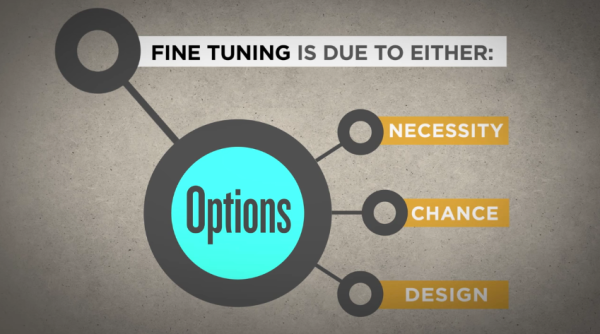What Do You Think of the Fine-Tuning Argument for God?
by Brandon Vogt
Filed under The Existence of God

NOTE: We recently kicked off a new series of posts on popular arguments for God. Each post lays out the argument and is followed by open-ended discussion. The goal is not to offer a thorough defense or refutation of the argument in the original post, but to unpack it together, as a community, in the comment boxes. So far we've covered Alvin Plantinga's modal ontological argument for God, the Kalam cosmological argument, and the moral argument for God. Today, we'll look at the argument from fine-tuning.
Most scientists agree that the universe seems fine-tuned for life. Fundamental constants such as the speed of light, the gravitational constant, and Planck's constant seem so precisely adjusted, that even a minuscule variance in one of the them would throw off the whole universe and make life impossible—not just human life, life of any kind.
As Stephen Hawking, the atheist cosmologist, admits, "The remarkable fact is that the values of these numbers seem to have been very finely adjusted to make possible the development of life."
Paul Davies, an agnostic physicist, agrees, saying, "There is for me powerful evidence that there is something going on behind it all...it seems as though somebody has fine-tuned nature's numbers to make the universe. The impression of design is overwhelming."
So what best explains this "fine-tuning" of the universe? Are these fundamental values necessary (i.e., they can't be anything other than what they are)? Are they arbitrary and set by chance? Or were they precisely ordered by some force or designer outside of the universe?
That question is central to the fine-tuning argument for God. Here's a brief video from William Lane Craig's Reasonable Faith ministry that sums it up:
The video presents the argument like this:
Premise 1: The fine-tuning of the universe is due either to necessity, chance, or design.
Premise 2: The fine-tuning of the universe is not due to necessity.
Premise 3: The fine-tuning of the universe is not due to chance.
Conclusion: Therefore, the fine-tuning of the universe is due to a designer.
From this we can infer that this designer must be a transcendent, supremely intelligent creator of the cosmos. That obviously doesn't prove the fullness of God, as understood by Catholics and other Christians, but it does reveal a huge slice of him—a slice far too big for any content atheist or agnostic.
So what do you think? Is the fine-tuning argument a sound proof for God? If not, how does it fail?
Related Posts
Note: Our goal is to cultivate serious and respectful dialogue. While it's OK to disagree—even encouraged!—any snarky, offensive, or off-topic comments will be deleted. Before commenting please read the Commenting Rules and Tips. If you're having trouble commenting, read the Commenting Instructions.












